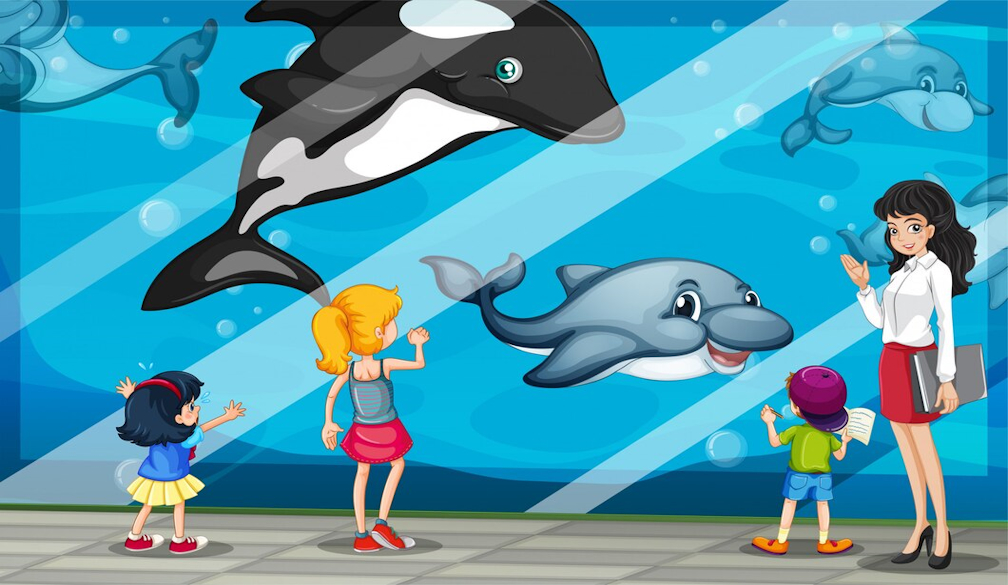The Benefits of School Excursions to Underwater Worlds

Exploring the mystical depths of underwater worlds holds an unparalleled charm, especially for young minds eager to learn and discover. School excursions to places like aquariums offer more than just a day away from the classroom; they present a unique opportunity to enhance education through direct engagement with marine life. This article delves into the myriad benefits that such excursions offer, including educational enhancements, cognitive and social-emotional development, as well as unexpected health benefits.
The Importance of Marine Life
Marine ecosystems are among the most important on our planet, providing essential services from regulating climate to supporting fisheries that feed millions globally. Understanding these systems starts with education, and there's no better way to ignite a passion for marine conservation than by experiencing these environments first-hand. School excursions to underwater worlds allow students to see the complexity of marine life up close and personal, fostering a deep appreciation and a lifelong interest in conservation. These outings expose learners to the diverse species that populate our oceans, from the tiniest plankton to the majesty of sharks, each playing a pivotal role in marine ecosystems.
Benefits of School Excursions to Underwater Worlds
Educational trips to places like AQWA provide immersive experiences that are hard to replicate in a classroom setting. Pupils are not only spectators but also participants in learning, engaging their senses and curiosity in ways that books and videos cannot. Such excursions also often align with curriculum objectives, offering hands-on learning in biology, ecology, and even geography. The interactions that students have with marine experts and educators during these visits can ignite a passion for marine sciences and inspire future educational and career paths.
Educational Value
When students step into an underwater world, they are given the chance to encounter real-life manifestations of subjects they've only discussed theoretically in classrooms. This practical exposure helps cement complex concepts like food chains, adaptation, and ecosystem interdependence. The guided tours often included in school excursions enrich students’ knowledge through expert insights and Q&A sessions that challenge them to think critically about conservation issues. Furthermore, educational materials provided during these visits are tailored to complement academic curriculums, thereby enhancing the learning experience and providing teachers with tools to extend the lessons back in the classroom.
Cognitive Development
Visiting an underwater world engages students in a multi-sensory experience that stimulates cognitive development. Navigating through different exhibits, reading informational placards, and participating in interactive sessions require the use of memory, reasoning, and comprehension skills. These activities encourage learners to apply what they know in new and unfamiliar contexts, a process which is key to cognitive growth. Moreover, the novelty of the environment and the richness of the visual stimuli help enhance attention and concentration skills, crucial for academic success across subjects.
Social and Emotional Development
School excursions are not just educational; they are also social ventures. Students interact with peers in a non-classroom setting, which helps develop social skills such as communication, cooperation, and empathy. For many students, these experiences also involve overcoming fears and anxieties, like the fear of large marine creatures, fostering resilience and emotional growth. Additionally, the shared experiences of awe and wonder during the visit can strengthen bonds among classmates, contributing to a positive school culture and improved interpersonal relationships.
Health Benefits
The benefits of school excursions to underwater worlds extend beyond the cognitive and emotional to include physical health benefits. Walking through large aquariums involves a significant amount of mild physical activity which contributes to overall physical wellbeing. Moreover, the calming effect of watching marine life glide serenely through the water has been likened to the effects of mindfulness meditation, known to reduce stress and anxiety. Thus, a school excursion can be a subtle yet effective way to boost mental health amongst students.
How to Plan an Effective School Excursion to an Underwater World
Planning a successful school excursion requires careful consideration of several factors to maximize the educational value of the visit. Start by choosing an aquarium that has strong educational programs aligned with the school curriculum. Pre-visit preparation should involve students in learning about the marine species they will see, as well as the ecological challenges these species face. During the visit, engaging and knowledgeable guides can make a significant difference, as can structured activities like scavenger hunts or guided observation tasks. Post-visit activities are equally important; consider projects or presentations based on the visit to reinforce learning.
Conclusion
School excursions to underwater worlds offer a rich tapestry of benefits that extend well into various aspects of educational and personal development. From enhancing curriculum understanding and cognitive skills to promoting emotional resilience and physical health, the advantages are palpable. Such excursions not only educate but also inspire students, planting seeds for future careers in marine sciences and conservation, and fostering a generation of informed citizens ready to take responsible action towards preserving our precious marine environments. As educators and parents, investing in these experiences provides immense returns in the form of enriched, engaged, and educated young minds.

















